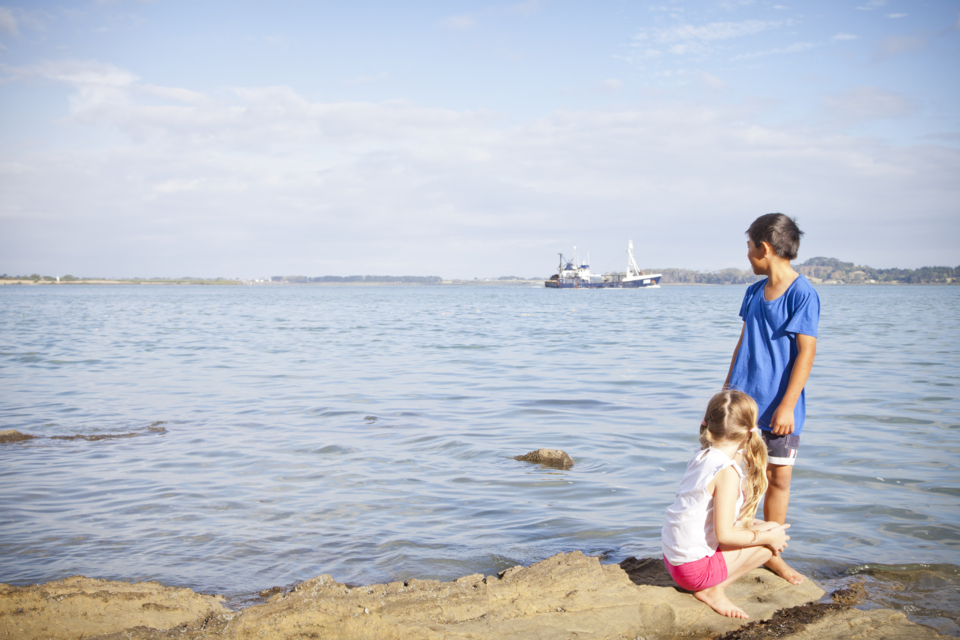Elected southern Auckland Council leaders have welcomed the Manukau Harbour State of the Environment Report as a starting point for work to improve the waterway.
Manurewa-Papakura Councillor Angela Dalton says the harbour is central to the area’s people.
“The report underlines issues mana whenua and members have voiced. We all want this waterway enhanced. The partnership the council has with mana whenua as kaitiaki will be critical to the mauri of the Manukau and its awa.”
The report finds the overall air quality in the catchment is improving although falls below national standards occur; notes productive rural soils are over-fertilised, and that weeds and pests are present.
It says coastal water nutrient levels are elevated, excess sedimentation impacts tidal creeks, and Māngere Inlet sediment mineral contamination levels are higher than other sites.
It identifies Puhinui Stream as representative of intensive urban and industrial land use, but noting improvements in nutrient concentrations, water clarity and metal contamination
Manurewa-Papakura Councillor Daniel Newman says the report underlines why stormwater solutions are needed.
“The Awakeri Wetland sets the design standard for urban communities at a time when this report highlights the choices being faced around housing demand.
"There are places where land use that triggers sediment run-off can’t continue. We need to ask if engineering solutions at development sites can allow for residential and commercial use when we know the environmental effects.”
Manurewa Local Board chair Joseph Allan agrees. “It will take time to turn things around. Our partnerships with Manurewa Marae, around the Puhinui, schools, Totara Park groups, and joining with Franklin and Papakura in the Papakura Stream Restoration Project are critical. We have to stand together.”
That view is shared by Papakura chair Brent Catchpole. “We have been talking with mana whenua about how we make the Pahurehure Inlet an even more valued amenity, but in a way that benefits the harbour. All nine boards on the Manukau need to be its guardians.”

Franklin Ward Councillor and Deputy Mayor Bill Cashmore says Auckland Council’s 10-Year Budget provides 44 per cent more funding for the environment.
“Human activity has been adding to environmental challenges for years and now we are increasing measures to repair the damage.”
He says the participation of businesses, marae, schools, families, individuals and the council family, shows how serious the issue is.
“Pukekohe’s growers are engaged in minimising nitrogen use, capturing sediment and planting waterway corridors. We call out ‘dirty dairying’ but there are many fencing waterways and planting natives, and urban businesses are collecting run-off to stop heavy metals entering our waterways.”
Franklin Local Board chair Andy Baker says the health of the Waitematā and Manukau harbours is critical to his area, bordered by both.
“We also have the Wairoa River and our communities have told us to make the environment a priority. We are committed to all initiatives and especially the Manukau Harbour Forum.”
Baker was instrumental in establishing the Forum in 2011. It unites the southern boards with Ōtara-Papatoetoe, Puketāpapa, Whau, Māngere-Ōtāhuhu, Maungakiekie-Tāmaki and Waitākere Ranges, which all also border the harbour, to advocate on issues for decisions that can only be made at the council level.
“A decade on it is good to have this report but the challenge will be how everyone with an interest in the harbour can work together.”
Forum chair and Puketāpapa Local Board deputy chair Jon Turner says the focus is on ensuring the community benefits from sustainable management. “The report puts the spotlight on our taonga. We can draw from it to lobby for policy that enables the harbour’s sustainable use.”
The State of the Environment Report draws on data from 11 technical reports to provide an environmental health check of the region's air, land and water, including for the Manukau Harbour.
The council has undertaken a range of initiatives around the harbour, including restoration, under its Te Tāruke-ā-Tāwhiri: Auckland's Climate Plan.

